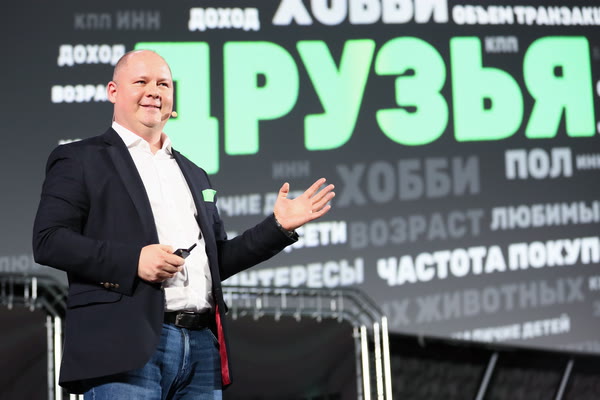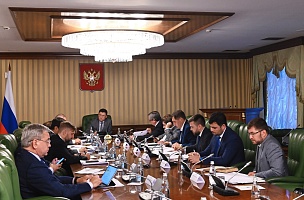The session ‘The Digital World Is Already Here! Are You Ready?’ was held as part of Young Enterprise Day at the Russian Investment Forum on 13 February.
Andrey Shubin, Executive Director of the All-Russian Non-Governmental Organization of Small and Medium-Sized Businesses OPORA RUSSIA and the moderator of the event, noted that digital technologies are completely changing the world today. All services must be provided automatically on-line in a convenient format in order for the «government to be comfortable», he said.
Russian Deputy Minister of Digital Development, Communications, and Mass Media Maksim Parshin told the participants that his Ministry has already come up with a «super service» concept that features a set of 25 basic life situations for a person. Paper documents are already secondary, he said. The government should become a «super computer», i.e. a set of information and analytical systems. «If we don’t build our own digital state, others will build it in place of us, but obviously not for us,» he said.
Parshin also noted that the country has virtually established a system of interdepartmental cooperation with more than 100 million transactions per day. As of the end of 2018, Russia had 2,809 multifunctional centres (MFC), whose services are used by 86.5 million people, while the volume of payments through a single public services portal amounted to RUB 56.4 billion in 2018.
Russian Deputy Minister of Economic Development Vadim Zhivulin said the number of federal regulatory acts is constantly growing each year. Whereas in 2002 there were 7,882 such acts, by 2017 this number had spiked to 32,434 documents.
Modern trends show that new platforms and systems for the storage and transmission of information emerge as the volume of such information increases. Such platforms act as regulators of social and economic life. Whereas in the past people could get by without fulfilling certain requirements, today digital technologies make this impossible. «We are building a digital interactive ecosystem that brings together all measures of state support for business and the options that the public and individuals need», he said.
Sberbank Vice President and Head of the GR Directorate Andrey Sharov believes that «the state should not be a pike and that banks have already become real partners for business and people. All’s well with the bank when all’s well with the client. I can’t say that about the state».
He also stated that, as the digital world arrives, the bank is becoming an intermediary that provides not only financial but non-financial services as well. These include such new services as online learning, digital finance, digital public services, business management, life science, P2P, e-com, and digital avatar.
BI.ZONE Director Dmitry Samartsev told the session participants there has been a significant increase in the threat of cybercrime. «The world is becoming transparent due to the digitization of traditional industries. Cyber-attacks are a critical risk for all countries. States have to decide which way to go — to unite in order to jointly combat threats or to create digital walls», he said.
Cybercrime is always one step ahead. The World Economic Forum ranks cybercrime as one of the top five threats to humanity above terrorism. According to some calculations, if governments fail to combat cybercrime, global GDP could lose roughly 8.0 trillion USD by 2024, which is twice the amount of Norway’s GDP.
Asked what can be expected going forward, Samartsev said: «The struggle of artificial intelligence». He believes that people today are not aware of the danger they face by leaving behind digital traces that will never disappear. The concept of personal data is changing rapidly. The level of cyber culture is extremely low, while the level of cyber-attacks is constantly on the rise. Scammers can learn more about a person than that person’s close relatives using digital footprints.
«Russia will immediately need to resolve the issue of ensuring the cybersecurity of the state, society, business, and the individual in a transparent digital world», he said.






